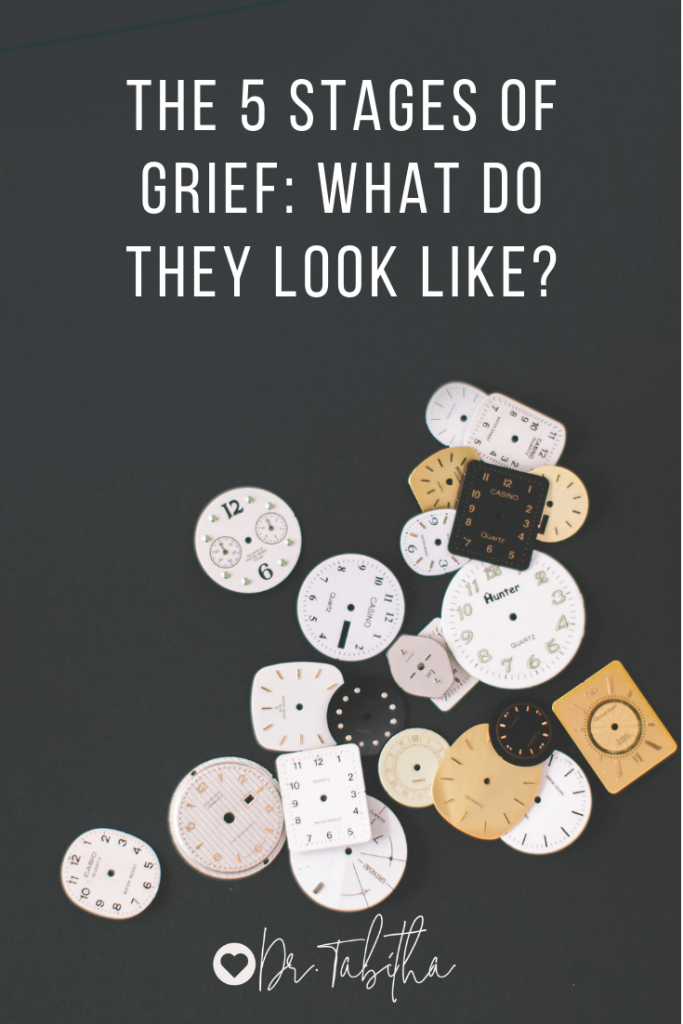
There are very few people in life that have not experienced some form of loss. From the loss of a relationship, to a loss of a pet, you can recognize the stages of grief in many situations. Even in scenarios outside of the expected, such as the death of a loved one – you may experience the stages of grief in other situations like dealing with terminal illness, children dealing with their parent’s divorce, or the loss of a substance for a drug user. Loss is an inevitable part of life, and it is okay to need help during the process.
Here Are The 5 Stages of Grief and What They Look Like
Denial: “This can’t be happening.”
In this stage you might refuse to accept the fact that a loss has occurred. You may minimize, make excuses for or deny the situation. It is often recommended that the loved ones (and professionals) be forward and honest about losses to not prolong the denial stage.
Anger: “Why is this happening to me?”
When somebody realizes that a loss has occurred, they may become angry at themselves or others. They may argue that the situation is unfair and try to place blame. This second phase in the stages of grief is a common place to relapse back to. Meaning, even if you have gone through anger and experienced bargaining or depression, it isn’t uncommon to experience the anger stage again.
Bargaining: “I will do anything to change this.”
In bargaining, you may try to change or delay the loss. For example, you may try to convince yourself and your partner that you can just move on or that you don’t need to talk about it. Essentially it can be seen sometimes as a last ditch effort to delay the pain of a loss.
Depression: “What’s the point of going on after this?”
At the stage of depression, you may come to recognize the reality that a loss has occurred or may still occur. You may find that you are isolating yourself and spending time crying and grieving. Depression is a precursor to acceptance because you have come to recognize your loss, which then can lead you to the realization that you will be okay, regardless of the outcome.
Acceptance: “It’s going to be okay.”
Finally, you will come to accept the loss and the change. In this stage, you can understand the situation logically, and you will be able to come to terms with the situation emotionally.
So what can you do?
In addition to experiencing both real and ambiguous loss, if you’ve been betrayed you have likely lost the ability and motivation to trust. You may feel a pretty big void. You could be feeling more insecure and struggling with self-esteem. Recovering from ambiguous loss and the aftermath of an affair, whether alone or together, takes time. Give yourself time to heal. Show yourself some kindness, grace and patience. Another thing to be aware of is healthy coping skills. During this time it is especially important to take care of yourself.
There are alarming statistics published that show the importance of processing through grief in the right way. A research study published at griefspeaks.com showed that every 78 seconds a teen attempts suicide…Every 90 seconds, they succeed. A huge percentage of this teenagers and adults alike struggle to process their grief. There is help available. If you have had suicidal thoughts don’t hesitate to reach out, you can anonymously call this number for immediate help: 1-800-273-8255 (Suicide Prevention Lifeline).






Leave a Reply
Your email is safe with us.